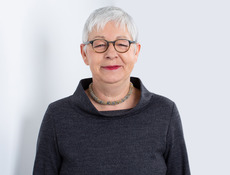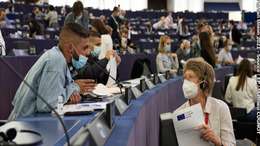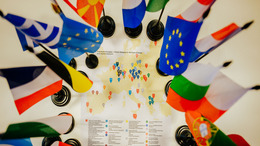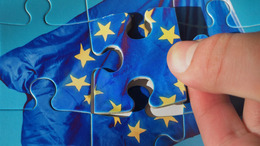![[Translate to English:] Podiumsteilnehmer der Veranstaltung](/fileadmin/files/_processed_/b/7/csm_265577077ENP_east_south-7255_4e7d66dd2a.jpg)
Sebastian Pfütze
Securing a Good Neighbourhood in the South and East
Civil war in Syria, Libya and Eastern Ukraine, major economic and social problems in the North African states: Europe is currently surrounded by crises and conflicts. What can the "European Neighbourhood Policy" do here? We discussed this with a group of experts, including the foreign ministers of Estonia and Malta, in Berlin on 14 July.
What's the next step for the EU's so-called European Neighbourhood Policy? This is what we discussed on 14 July in Berlin with Sven Mikser and Carmelo Abela, the foreign ministers of Estonia and Malta, together with other experts from politics and civil society.
The European Neighbourhood Policy was launched in 2004 as means of helping the EU's neighbouring states to the south and east to achieve stability, security and prosperity. However, this challenge appears to be as large and diverse as the official border region of the European Union itself: it stretches from Ukraine to Libya and Morocco via Syria, and has developed into a crisis and conflict-ridden area in recent years.
For example, the EU has to deal with civil wars like the one in Eastern Ukraine, unstable states such as Libya, and migration flows from the Middle East and North Africa. Another difficulty stems from the fact that Russia and countries like Iran and Saudi Arabia, which see themselves as protectors of Sunni and Shiite Muslims, play an important role in the European border region. Instability in the neighbourhood has a direct impact on the EU – as we see every day.
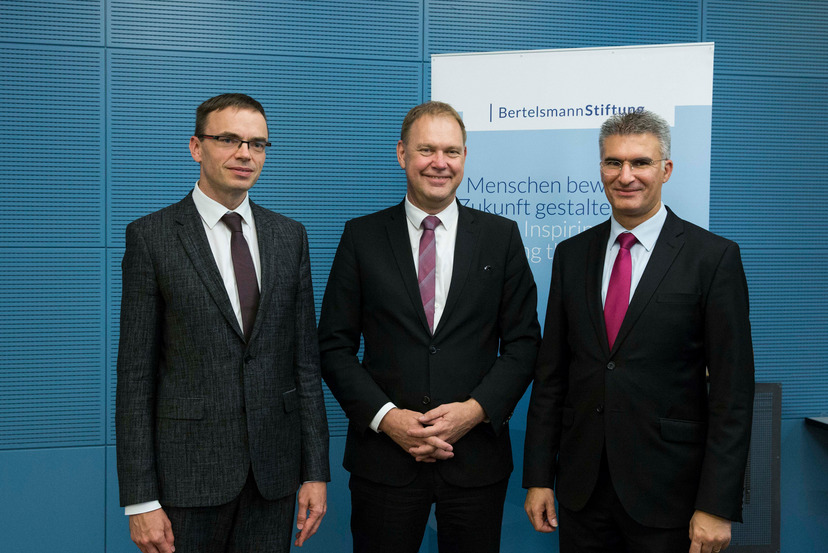
Sebastian Pfütze
From left to right: Sven Mikser, Foreign Minister of the Republic of Estland, Aart De Geus, Chairman and CEO of the Bertelsmann Stiftung, and Carmelo Abela, Foreign Minister of the Republic of Malta. Photo: Sebastian Pfütze
Europe is not an island
Aart De Geus, Chairman of the Bertelsmann Stiftung, declared right at the beginning of the discussion: "Europe is not as island." Hence why it is so important to turn the "ring of fire" that has formed in Europe's neighbouring states as a result of conflicts and violent clashes into a "ring of friends". Only by doing so can the EU and its neighbours share a vision for the future.
The EU's instruments in the fields of foreign, defence, trade and development policy need to be combined better and made more effective in order to enable its neighbouring states to achieve security, stability and prosperity too – all the participants agreed on that. However, there was a difference of opinions when it came to the form the European aid should take. While the Estonian foreign minister Sven Mikser believed that EU aid should be contingent upon conditions such as reforms or democracy, his Maltese counterpart Carmelo Abela called for patience vis-à-vis the neighbouring states. Combining both viewpoints, Aart De Geus said: "We should strongly defend our cause but be gentle in manner."

